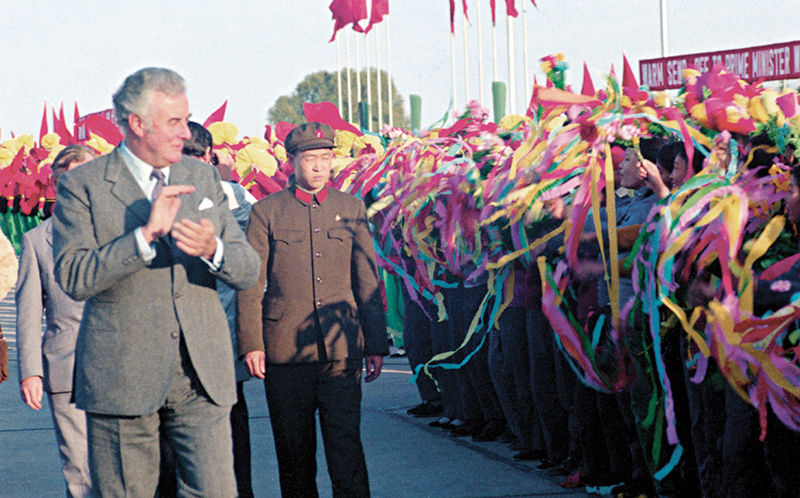Best of 2022: Pivotal Moment: Albanese and Xi in 2022 mirror Whitlam and Zhou in 1971
January 1, 2023
_The meeting between Anthony Albanese and Xi Jinping put me in mind of the public reaction in Australia when Whitlam met Chinese Premier Zhou Enlai in 1971.
_
A repost from November 17, 2022
The meeting in Bali is potentially more than just a diplomatic reset. It could be a pivotal moment for Australia, in the dynamics of the China question in our domestic politics the way we think about and how we approach the relationship.
Some media commentators have written that Xi meeting Albanese sends a message to Chinese officials that engaging with Australia is OK, and that this will unlock the bar on official contacts including for the Australian Ambassador in Beijing. (If the media had been watching with anything but jaundiced eye, they might have noticed that Chinas ambassador Xiao Qian, has been busily working away at this in many contexts since he got off the plane in January this year).
But think about the message on the Australian side. Think back first to earlier this year when Ambassador Xiao sought to make a courtesy call on then Prime Minister Morrison. Morrison not only rejected the approach, he announced that for him to meet the Ambassador would be a sign of weakness. Think what message that sent to the Australian people. No surprise that public opinion has become increasingly negative about China.
Now, while it is true that one meeting does not resolve the substantive issues both sides have, the fact that Albanese sought the meeting, that Xi agreed, and that it seems to have been frank but also amicable, overnight strengthens the hand of those who have been arguing for re-engagement with Beijing.
This move supports Penny Wong, who has been steadily building a relationship with her PRC counterpart. It will enhance the influence of DFAT, in both China policy and in the handling of our relations with China, and more generally in Canberra officialdom. And if Twiggy Forrest is to be believed, it signals renewed belief in the uses of back-channel diplomacy.
At the same time, it represents a denial of the emotional, ideological, and in some quarters race-based attitude to China of recent years.
And it calls on those in government who have been arguing for Australia to arm itself against the China enemy with everything from nuclear submarines to long-range bomber aircraft to explain how they justify this, when the context now is not China as enemy but, as Albo has said, re-dedication to China as strategic partner.
For the media, some of whom are already arguing it is a victory for the hairy-chestedness of the China policy of recent years and that this has somehow brought China to heel, it presents and elevates a different China narrative, one where there is a future, and a strategic partnership. The media drop from certain Canberra agencies and officials demonising China that had become the norm for guiding the hand of media commentary, now has a counterpoint which cannot be ignored.
And importantly, the message for the general public is that the Chinese leader, whatever criticism you might make of his power and policies, doesnt have horns or two heads, but is a human being who sits down and has civilised discourse with an Australian leader. While it doesnt do to stretch historical comparisons, this does put me in mind of the public reaction in Australia when Whitlam met Chinese Premier Zhou Enlai in 1971. Following that much filmed and photographed and reported event, there was an almost complete turnaround in the way the general public in Australia viewed China and Chinese people as people, and that led to different attitudes to how we should approach our relations with China. We can hope to see something similar now.
And finally, this meeting can only be a good message for the 1.4 million Australians of Chinese ancestry, who have had to suffer the most outrageous calumny and in some cases harassment as the government-sponsored narrative became not only more anti-China but also dog-whistle anti-Chinese. If that is now put to sleep, we can rejoice for the greater good of our society.
First published in Pearls and Irritations on November 17, 2022

